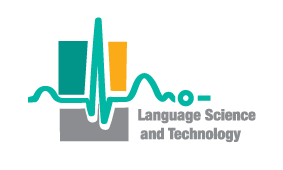Language Science and Technology is a new M.A. programme at the Institute of Applied Linguistics financed by the Excellence Initiative – Research University programme.
It was launched in the academic year 2023/2024 free of charge for both Polish and foreign students.
The duration of the programme is 2 years. The enrolment for the next edition of the programme will start in June 2025.
I act as the programme head and coordinator.
Who is it for?
Candidates who would like to
- learn the basics of programming (e.g. Python)
- gain experience in statistical analysis (R, SPSS)
- learn how to investigate linguistic systems using experimental methods
- learn about language processing in the brain
- learn about the social underpinnings of language use
- deepen your knowledge of the English language
- learn about the less known areas of linguistics
Candidates who would like to find out
- what linguistics has in common with language corpora and large databases
- how to use chatGPT in language tasks
- why Samsung, Google, Amazon and the like are looking for grammar experts
- what eye-tracking and EEG studies can teach us about language
- what product localization is
- why an increasing number of companies needs support in creating product specifications or instructions for customers
- how a linguist can help customers in making informed commercial choices
- which new professions require linguistic competence
linguists
Linguists find employment in a range of companies that provide linguistic services, such as document editing, product localisation and grammar. Linguists also assist in building natural language processing tools, serve as language consultants, manage language databases and develop artificial intelligence tools.
copy editors
A copy editor edits documents and texts with regard to style, syntax, grammatical correctness. This specialist can find employment in advertising agencies, publishing houses and companies that produce content and marketing materials.
technical writers
A technical writer develops written content on a specific topic for companies and organizations (e.g., training materials, product specifications, consumer instructions), and conducts research on new products.
copywriters
A copyrighter writes texts designed to encourage customers to purchase a company’s products or use its services (e.g., social media content, online articles, press releases, marketing materials).
language specialists
A language specialist provides translation or interpreting services, usually with a specialization in a particular field, e.g. law, medicine, environment. Also, a language specialist assists in the process of editing and translation by identifying information or prior publications, which facilitates preparation of high-quality translations.
computational linguists
A computational linguist uses language and computer science to find solutions to technical problems, specialising in areas related to artificial intelligence and machine translation. Computational linguists may work both in a commercial organisation as well as in a research centre, where they participate in international projects focused on research and its application in creating new products.
language researchers
Language researchers participate in projects aimed at investigating various aspects of language processing and production. They experimentally test theoretical hypotheses using neurolinguistic methods such as oculography or EEG, and develop language databases, corpora and tools for their analysis.
The course schedule and full programme are available at the following website:
https://lst.ils.uw.edu.pl/en/language-science-and-technology/
